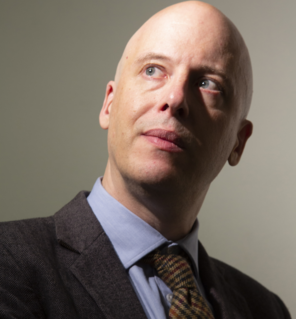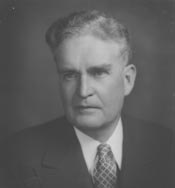A Quote by Oswald Chambers
The historic idea that the devil tempts men had this remarkable effect, it produced the man of iron who fought; the modern idea of blaming his heredity or his circumstances produces the man who gives in at once.
Related Quotes
And when that crop grew, and was harvested, no man had crumbled a hot clod in his fingers and let the earth sift past his fingertips. No man had touched the seed, or lusted for the growth. Men ate what they had not raised, had no connection with the bread. The land bore under iron, and under iron gradually died; for it was not loved or hated, it had no prayers or curses.
The value of an idea has nothing whatsoever to do with the sincerity of the man who expresses it. Indeed, the probabilities are that the more insincere the man is, the more purely intellectual will the idea be, as in that case it will not be coloured by either his wants, his desires, or his prejudices.
This process, this method necessary to man's survival and prosperity upon the earth, has often been derided as unduly or exclusively "materialistic." But it should be clear that what has happened in this activity proper to man's nature is a fusion of "spirit" and matter; man's mind, using the ideas it has learned, directs his energy in transforming and reshaping matter into ways to sustain and advance his wants and his life. Behind every "produced" good, behind every man-made transformation of natural resources, is an idea directing the effort, a manifestation of man's spirit.
I'm the smartest man in the world. Once I wore a cape in public, and fought battles against men who could fly, who had metal skin, who could kill you with their eyes. I fought CoreFire to a standstill, and the Super Squadron, and the Champions. Now I have to shuffle through a cafeteria line with men who tried to pass bad checks. Now I have to wonder if there will be chocolate milk in the dispenser. And whether the smartest man in the world has done the smartest thing he could do with his life.
A man of intellect is like an artist who gives a concert without any help from anyone else, playing on a single instrument--a piano, say, which is a little orchestra in itself. Such a man is a little world in himself; and the effect produced by various instruments together, he produces single-handed, in the unity of his own consciousness. Like the piano, he has no place in a symphony; he is a soloist and performs by himself--in soli tude, it may be; or if in the company with other instruments, only as principal; or for setting the tone, as in singing.
How very seldom do you encounter in the world a man of great abilities, acquirements, experience, who will unmask his mind, unbutton his brains, and pour forth in careless and picturesque phrase all the results of his studies and observation; his knowledge of men, books, and nature. On the contrary, if a man has by any chance an original idea, he hoards it as if it were old gold; and rather avoids the subject with which he is most conversant, from fear that you may appropriate his best thoughts.







































